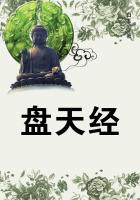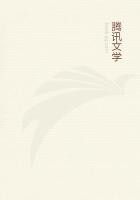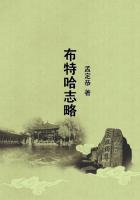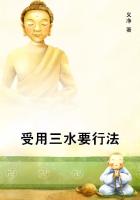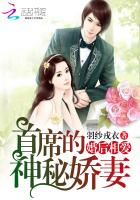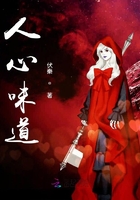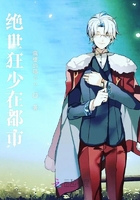And all this terrible change had come about because he had ceased to believe himself and had taken to believing others. This he had done because it was too difficult to live believing one's self; believing one's self, one had to decide every question not in favour of one's own animal life, which is always seeking for easy gratifications, but almost in every case against it. Believing others there was nothing to decide; everything had been decided already, and decided always in favour of the animal I and against the spiritual. Nor was this all. Believing in his own self he was always exposing himself to the censure of those around him; believing others he had their approval. So, when Nekhludoff had talked of the serious matters of life, of God, truth, riches, and poverty, all round him thought it out of place and even rather funny, and his mother and aunts called him, with kindly irony, notre cher philosophe. But when he read novels, told improper anecdotes, went to see funny vaudevilles in the French theatre and gaily repeated the jokes, everybody admired and encouraged him. When he considered it right to limit his needs, wore an old overcoat, took no wine, everybody thought it strange and looked upon it as a kind of showing off; but when he spent large sums on hunting, or on furnishing a peculiar and luxurious study for himself, everybody admired his taste and gave him expensive presents to encourage his hobby. While he kept pure and meant to remain so till he married his friends prayed for his health, and even his mother was not grieved but rather pleased when she found out that he had become a real man and had gained over some French woman from his friend. (As to the episode with Katusha, the princess could not without horror think that he might possibly have married her.) In the same way, when Nekhludoff came of age, and gave the small estate he had inherited from his father to the peasants because he considered the holding of private property in land wrong, this step filled his mother and relations with dismay and served as an excuse for ****** fun of him to all his relatives. He was continually told that these peasants, after they had received the land, got no richer, but, on the contrary, poorer, having opened three public-houses and left off doing any work. But when Nekhludoff entered the Guards and spent and gambled away so much with his aristocratic companions that Elena Ivanovna, his mother, had to draw on her capital, she was hardly pained, considering it quite natural and even good that wild oats should be sown at an early age and in good company, as her son was doing. At first Nekhludoff struggled, but all that he had considered good while he had faith in himself was considered bad by others, and what he had considered evil was looked upon as good by those among whom he lived, and the struggle grew too hard. And at last Nekhludoff gave in, i.e., left off believing himself and began believing others. At first this giving up of faith in himself was unpleasant, but it did not long continue to be so. At that time he acquired the habit of smoking, and drinking wine, and soon got over this unpleasant feeling and even felt great relief.
Nekhludoff, with his passionate nature, gave himself thoroughly to the new way of life so approved of by all those around, and he entirely stifled the inner voice which demanded something different. This began after he moved to St. Petersburg, and reached its highest point when he entered the army.
Military life in general depraves men. It places them in conditions of complete idleness, i.e., absence of all useful work; frees them of their common human duties, which it replaces by merely conventional ones to the honour of the regiment, the uniform, the flag; and, while giving them on the one hand absolute power over other men, also puts them into conditions of servile obedience to those of higher rank than themselves.
But when, to the usual depraving influence of military service with its honours, uniforms, flags, its permitted violence and murder, there is added the depraving influence of riches and nearness to and intercourse with members of the Imperial family, as is the case in the chosen regiment of the Guards in which all the officers are rich and of good family, then this depraving influence creates in the men who succumb to it a perfect mania of selfishness. And this mania of selfishness attacked Nekhludoff from the moment he entered the army and began living in the way his companions lived. He had no occupation whatever except to dress in a uniform, splendidly made and well brushed by other people, and, with arms also made and cleaned and handed to him by others, ride to reviews on a fine horse which had been bred, broken in and fed by others. There, with other men like himself, he had to wave a sword, shoot off guns, and teach others to do the same. He had no other work, and the highly-placed persons, young and old, the Tsar and those near him, not only sanctioned his occupation but praised and thanked him for it.
After this was done, it was thought important to eat, and particularly to drink, in officers' clubs or the salons of the best restaurants, squandering large sums of money, which came from some invisible source; then theatres, ballets, women, then again riding on horseback, waving of swords and shooting, and again the squandering of money, the wine, cards, and women. This kind of life acts on military men even more depravingly than on others, because if any other than a military man lead such a life he cannot help being ashamed of it in the depth of his heart. A military man is, on the contrary, proud of a life of this kind especially at war time, and Nekhludoff had entered the army just after war with the Turks had been declared. "We are prepared to sacrifice our lives at the wars, and therefore a gay, reckless life is not only pardonable, but absolutely necessary for us, and so we lead it."
Such were Nekhludoff's confused thoughts at this period of his existence, and he felt all the time the delight of being free of the moral barriers he had formerly set himself. And the state he lived in was that of a chronic mania of selfishness. He was in this state when, after three years' absence, he came again to visit his aunts.

